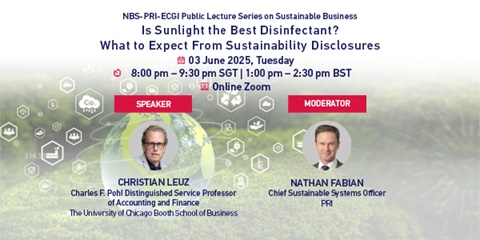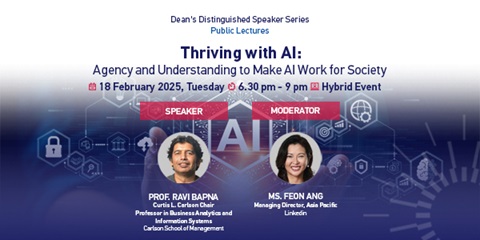Who really is a true leader in a crisis?
The pandemic has made discussions on leadership paramount. Much has been said about how the test of a good leader lies in how he or she performs during a crisis. While the criteria to identify effective leaders may appear obvious, there is, however, still some confusion over actual versus perceived leadership effectiveness. Just as Ivan Krylov wrote in the fable entitled The Inquisitive Man in 1814, this will not be the first time we are going to overlook the “elephant in the room” when our inquisitive minds focus on the minors (for example, birds) and forget or avoid the majors, such as the big elephants in the room. Even rarer than a big elephant is the ability to see or identify a black swan, or a leader who is able to demonstrate both actual and perceived leadership effectiveness.
Actual versus perceived leadership
Most people define effective leaders as those who can deliver results. However, this is only one of the two broad criteria of leadership effectiveness. Other important questions that engage the hearts of the followers need to be answered too. These affective questions include: Is he or she being perceived as an effective leader? Can he or she be trusted? Does he or she inspire confidence as a leader? Perceived leadership effectiveness is a neglected criterion that we need to consider.
This is an elephant in our subconscious mind— we know it is an essential factor, but we don’t know how to measure it. It is a known unknown in a black swan situation because leadership, especially during a crisis, involves the psychological aspect of feelings and perceptions.
What makes up Care?
Even before Covid-19, I have been researching the topic of crisis leadership qualities. After years of study,I have identified four important crisis leadership qualities – Creative, Adaptive, Resilient and Emotional Intelligence.
Creative
Covid-19 has been described as the black swan of the decade that has shaken almost everything around us and created an era of unknown unknowns. In this environment, leaders need to be able to think ahead, and at the same time, stay grounded with the current reality in terms of practicality. The challenges is to apply Janusian thinking; simultaneously consider the two conflicting demands or ideas of creativity and practicality. Some leaders dare to dream, but those around them know they are not realistic and grounded in the real world. Some are boxed-in and self-deceived. So, the first quality is creativity. Are the leaders open to new ways of doing things or still applying the old and well-tested methods? One success story is Tan Tock Seng Hospital which transformed from a traditional hierarchical leadership structure to a collective leadership approach that was proven to be a very effective modus operandi during the Covid-19 pandemic.
Adaptive
Adaptive leadership requires leaders to modify their decision-making process to meet new challenges by being proactive and flexible. The three important sub-dimensions of adaptive leadership are sense-making, sense-giving, and meaning-making. First, sense-making involves the ability to understand what is happening (situational awareness) and to expect the unexpected. Leaders need to have the ability to gather the necessary information and have a good understanding of the situation from a systems perspective. One quintessential example was the report that Russian President Vladimir Putin was not receiving accurate intelligence from the foreign-intelligence branch about the political warfare operations in Ukraine. It was reported that Putin was under the impression that pro-Kremlin groups in Ukraine would support the Russian invasion, but that never happened. The ability to achieve good sense-making affects leadership effectiveness, both actual and perceived. The second sub-dimension of adaptive leadership is sense-giving, in which leaders must help followers identify and prioritise meaning and purpose. Increased complexity and volatility can overwhelm leaders and those that they lead. Studies have revealed that an essential leadership quality in today’s highly volatile environment is to be aware and focus on the correct priorities. The third, meaning-making, refers to understanding the if-then model to anticipate potential problems as the events unfold. This is similar to having a mental map of
what is happening that can be used to guide future actions. A good example is the Boston Marathon bombing incident in 2013, when Massachusetts Governor Deval Patrick shut down all bus and train services in the entire metropolitan area, with the primary aim of preventing the terrorists from escaping. As a result, thousands of people were stranded in the open in Boston. This decision left thousands of visitors stranded along the streets, which complicated the hunt for the terrorists. In terms of meaning-making (understanding the consequences of a decision), the if-then model needs to consider the various permutations from a systems perspective during a crisis.
Resilient
There are four factors of this quality that were found to be essential for leaders: control, ownership, reach, and endurance, or Core in short. Control is the amount of perceived control one has over an adverse event or situation. The question essential for a leader is whether you believe in your ability to overcome challenges. Ukrainian president Volodymyr Zelensky has demonstrated this quality. Ownership is the extent to which one holds oneself responsible and motivated to lead, even if it is challenging. Ask yourself why you want to lead or serve and what motivates you to do this? Reach is the extent to which the leaders perceive that good or bad events influence other areas of their lives. The ability to have a good sense of reach is key to good psychological and emotional health for leaders in a weak structure or a volatile environment. Endurance is the perception of being able to endure good and bad events. To put it simply, it is a sense of optimism and inner energy to lead people out of a difficult situation. One quintessential example is the food resilience plan “30 by 30” — the goal of producing 30 per cent of Singapore’s nutritional needs by 2030, or the Singapore Green Plan 2030. Instead of looking at our lack of natural resources, our leaders demonstrated their abilities and motivation to turn the challenges into opportunities.
Emotional Intelligence
Emotional intelligence is commonly known to involve two dimensions — the self and others. The two sub-dimensions for self are emotional self-awareness and emotional self-management. According to the book Leadership and Self-Deception, emotional self awareness is the door to self-management. Leaders need to know what triggers their emotions, and be able to get out of the emotional basement or hijack the situation in order to engage in a rational thinking process to handle the task or problem at hand. Going back to the Boston incident, the leaders recounted that they were able to get out of emotional hijack situations quickly due to good self-awareness. The other two dimensions require leaders to know how others feel and how to manage their emotional responses. Unlike past research and traditional influencing tactics involving rational appeal, new neuroscience findings have revealed that engaging the hearts of others is essential. In a recent surveyconducted for 96 Gen Y students on their perceived acceptable leadership behaviours on emotional management, students were asked to judge three leaders who exhibited their emotions differently during a crisis. Two-thirds responded that it was acceptable for both male and female leaders to express their emotions during TV broadcasts after a national disaster. Only one-third accepted the emotional response of a military commander, who was choked up during a press conference while explaining a fatal accident. Identifying and dealing with elephants are the criteria for actual leadership effectiveness, and these are often obvious to most of us. Dealing with a black swan is the epitome of perceived leadership effectiveness, and the leader needs to win the trust and confidence of followers. Just like a swan serenely gliding through the water while the feet are paddling frantically below, the undercurrent of trust in leaders is a key success factor during a crisis. Let us start to recognise the elephants in the room and ask ourselves two important questions: do our leaders have the qualities to Care and lead in a weak structure when unknown unknowns are more common than the exception?
Dr Koh Cheng Boon is a senior lecturer from Nanyang Business School
Source: The Business Times


.tmb-listing.jpg?Culture=en&sfvrsn=8b2cb369_1)


